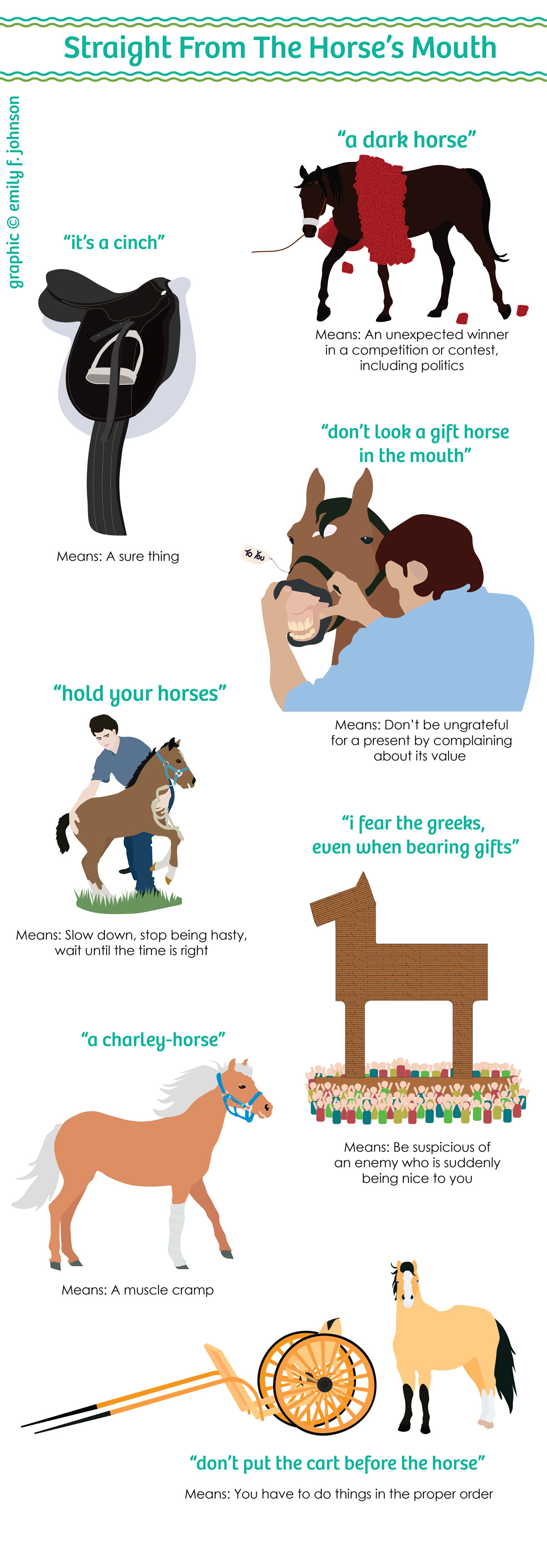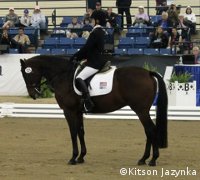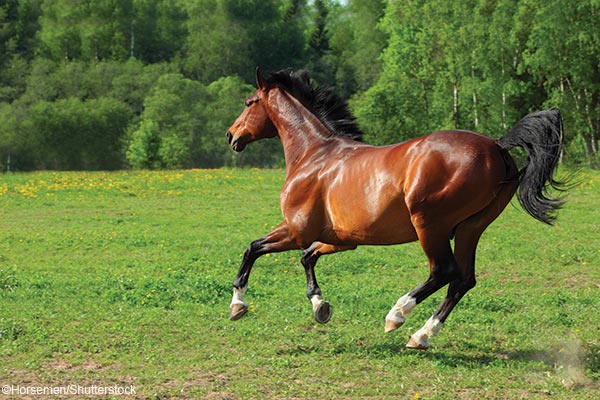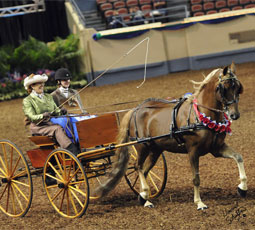English is a complicated language that has “borrowed” from other languages over time, taking a little piece from here, and a little bit from there. Similarly, it’s also full of phrases that might have formerly meant one thing, and now mean something else entirely.
When it comes to horses, modern English is full of phrases and clichés with an equine origin. Sometimes these phrases can still mean what they originally did, but many times a more generic meaning has come to be attached to them. Enjoy reading about how some of these unique phrases came to be.
“Long in the tooth”
Meaning: getting older, rather old.
Origin: Because horse’s teeth continue to grow throughout their lives, the approximate age of a horse can be determined by examining its teeth—a horse “long in the tooth” is getting on in years.
“It’s a cinch”
Meaning: a sure thing, an easy thing
Origin: Horse racing. A trainer with a sure winner only had to “cinch up” the saddle for a win to be guaranteed, so “it’s a cinch” became a term for an easy task or victory.
“Hold your horses”
Meaning: slow down, stop being hasty, wait until the time is right.
Origin: Basic horsemanship skills! A very early literary reference is found in Book 23 of Homer’s Iliad.
“Dark horse”
Meaning: an unexpected winner in a competition or contest, including politics
Origin: Horse racing. A “dark” horse was a horse whose abilities were unknown, but who became a winner despite the long odds.
“Don’t look a gift horse in the mouth”
Meaning: Don’t be ungrateful for a present or free item by complaining about its value.
Origin: Similar to “long in the tooth,” looking at a horse’s mouth implies that you’re judging its age.
“My kingdom for a horse!”
Meaning: An object or possession that is normally insignificant can become highly valuable under certain conditions.
Origin: Spoken by King Richard III during a battle scene in the play Richard III by Shakespeare.
“Don’t put the cart before the horse”
Meaning: You have to do things in the proper order.
Origin: Common sense!
“I fear the Greeks, even when bearing gifts.”
Meaning: Be suspicious of an enemy who is suddenly acting nice to you.
Origin: Spoken by the Trojan Laocoön in Virgil’s Aeneid when the Greeks leave behind the giant wooden horse.
“Charley horse”
Meaning: a muscle cramp.
Origin: Unknown, American. Theories include the baseball pitcher Charley “Old Hoss” Radbourne, who sometimes got cramps; otherwise, a lame equine named Charley.
“Walkover”
Meaning: A sporting event or election that is won by default since there is only one competitor.
Origin: Horse racing, if only one horse entered the race, all he had to do was walk or gallop around the track to win.
Daniel Johnson is a freelance writer and professional photographer. He’s the author of several books, including How to Raise Horses: Everything You Need to Know, (Voyageur Press, 2014). Dan’s barn is home to Summer, a Welsh/TB cross, Orion, a Welsh Cob, and Mati and Amos, two Welsh Mountain Ponies. Follow him at www.facebook.com/foxhillphoto.







haha, i like those!
Those were good, funny, some of them I did not hear before. I was trying to think fast to add more, but I could n’t.
I enjoyed reading these.
But you didn’t explain the origin of “straight from the horse’s mouth” — which seems debated.